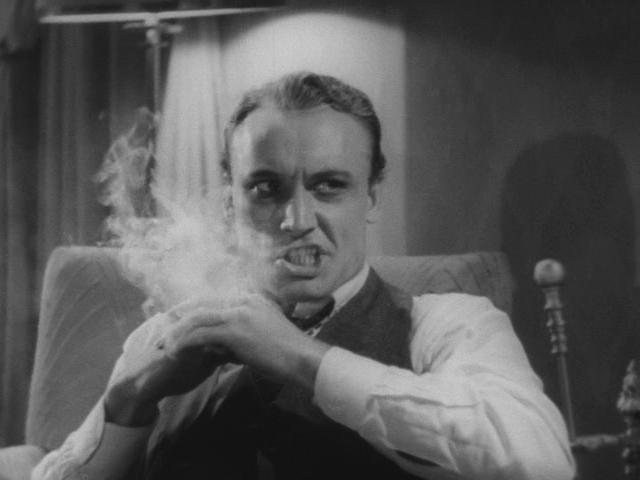Republican Reefer Madness
Aping the old drug-scare film, they back invalidated theories on marijuana’s alleged harm.
Despite the latest poll showing 83% support in Wisconsin for medical marijuana and 59% support for full legalization of marijuana for recreational purposes, Wisconsin Gov. Tony Evers’ proposal to legalize medical marijuana and decriminalize small amounts of recreational marijuana in Wisconsin is dead on arrival, according to Republicans leaders.
State Sen. Alberta Darling said of Evers’ proposal: “It’s really off-the-wall scary.”
And the term Sen. Darling used, “scary,” is precisely the fear-mongering tactic that has been deployed for decades when it comes to marijuana. So long as a politician can drum up enough fear about marijuana, even if that fear is totally divorced from reality, it is a go-to strategy.
The 1936 propaganda film Reefer Madness is the quintessential example of the way some in our society tried to make marijuana seem as bad as humanly possible — basically, that involving oneself with marijuana will generally lead to rape, murder, suicide, hallucination and insanity. In the trailer for the film, the narrator describes marijuana as a “vicious plant,” a “new and deadly menace lurking behind closed doors” and a “burning weed with its roots in hell.”
While Reefer Madness-style arguments may have worked for decades by scaring people about the plant, the tide has shifted considerably in Wisconsin. The latest Marquette University Law School poll shows 59% of respondents believe recreational marijuana should be legal, with only 36% opposed. The support for medical marijuana is 83%, with only 12% opposed.
Yet, Senate Majority Leader Scott Fitzgerald has said he opposes even medical marijuana. Thirty-three states have legalized medical marijuana, including our neighbors in Michigan, Minnesota and Illinois.
The shift in support is likely due, in large part, to the significant evidence about the medicinal benefits to many people suffering from debilitating illnesses. A 2017 analysis of cannabis research called “The Health Effects of Cannabis and Cannabinoids” studied more than 10,000 scientific abstracts and found cannabis to provide “significant” relief for pain and chemotherapy related nausea. Other ailments like epilepsy, post-traumatic stress disorder and more have been treated successfully with cannabis.
To be sure, marijuana is not without negative side effects and societal costs. But the “parade of horribles” that had been predicted by opponents of marijuana legalization has not proven to be true in the states that have gone to legalization. The current marijuana “black market” in states where it is illegal causes far more significant problems.
Many who have used marijuana for recreational purposes have seen draconian penalties and collateral consequences of criminal convictions that have had significant effects on their employment opportunities and more.
Contrary to the “marijuana-is-a-gateway-drug” theory, a recent study from the Drug and Alcohol Dependence report shows opioid abuse and overdose deaths are lower in places that have legalized marijuana.
A study published by the Journal of School Health concluded the gateway theory is associated with alcohol, rather than marijuana use. People who do use harder drugs are likely to do so because of far more powerful influencing factors, such as their social environment, negative peer groups, mental illness and poverty.
But public support has shifted significantly on the issue of marijuana. Some of the most Republican states in the country have legalized marijuana medically, recreationally, or both. Possession of marijuana, up to specified amounts, is now legal in Oklahoma with a Medical Marijuana License. In Alaska, a 2014 ballot initiative led to the legalization of marijuana for recreational use for people ages 21 and older who possess up to an ounce of cannabis and six plants. This week, lawmakers in Alabama, one of the reddest of the red states, approved a medical marijuana bill. Utah has a medical use marijuana law.
Despite 59% support for full marijuana legalization, according to the latest poll in Wisconsin, Assembly Speaker Robin Vos recently called Evers’ idea to decriminalize small amounts of marijuana “so preposterous” and “so far out of the mainstream.”
Given the strong trend and support from the overwhelming majority of Americans to legalizing marijuana for medical and recreational purposes, the tired, scare-mongering tactics of the past are unlikely to work going forward with more and more people catching on to the tactic.
While Wisconsin legislators may not pass a medical or recreational bill this time around, it is unlikely to be very long before the support for these measures is so overwhelming that even the most intransigent legislators may be forced to relent.
Casey Hoff is a criminal defense attorney based in Sheboygan.
Op-Ed
-
Wisconsin Candidates Decry Money in Politics, Plan to Raise Tons of It
 Dec 15th, 2025 by Ruth Conniff
Dec 15th, 2025 by Ruth Conniff
-
Trump Left Contraceptives to Rot; Women Pay the Price
 Dec 8th, 2025 by Dr. Shefaali Sharma
Dec 8th, 2025 by Dr. Shefaali Sharma
-
Why the Common Council’s Amended Budget is Good Policy for Milwaukee
 Nov 20th, 2025 by Alds. Marina Dimitrijevic and Russell W. Stamper, II
Nov 20th, 2025 by Alds. Marina Dimitrijevic and Russell W. Stamper, II






















I repeat, the abuse of any human activity that causes negative results is performed by 5% of the participants. Depending on which activity you are looking at, you might be part of the 5%.
All the while they are investing stealthily in what promises to be a zillion-dollar industry. Republicans and big business already are up to their necks in the legalized marijuana business.